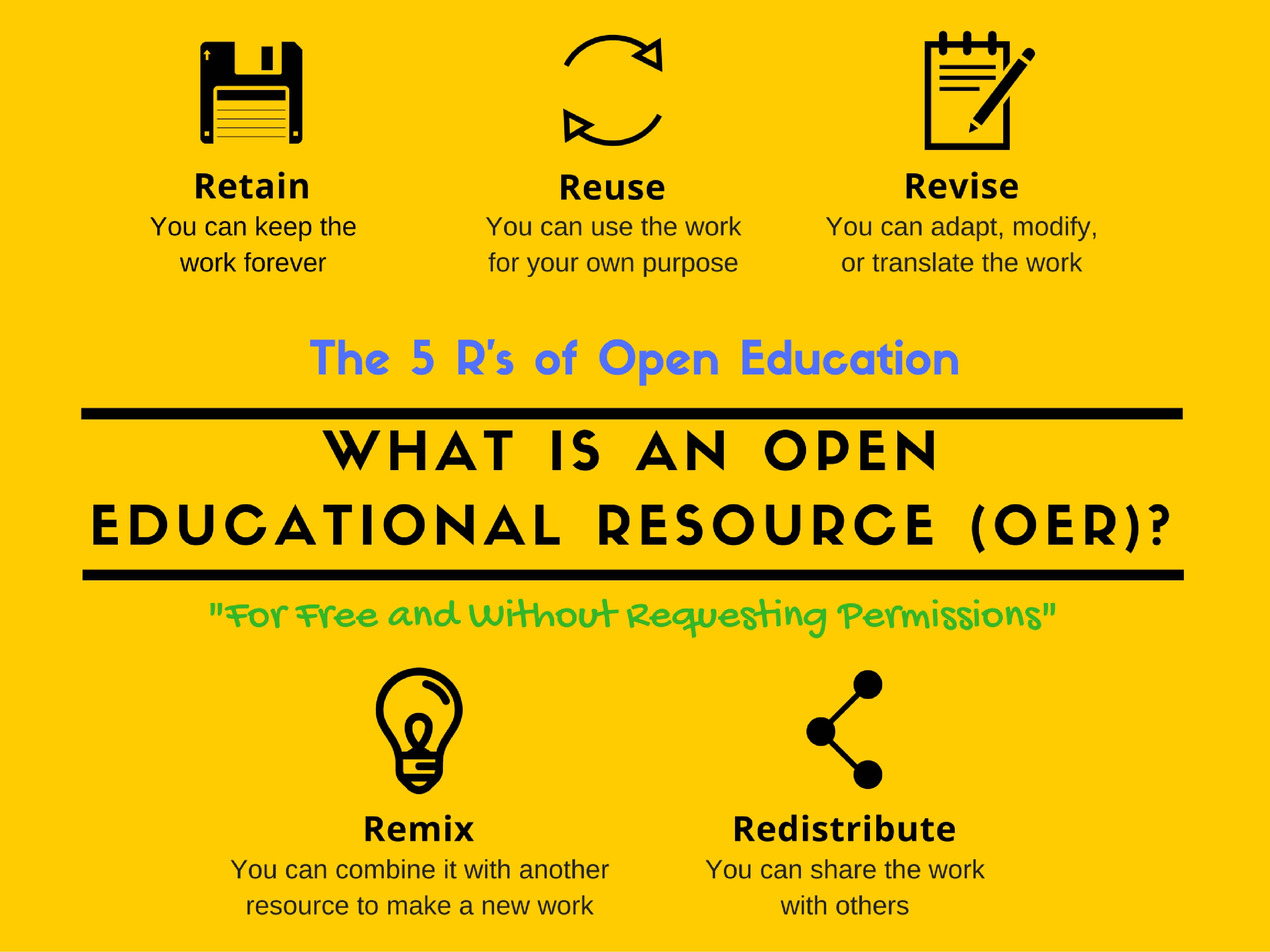
General Help
Library Staff
ZTC - zero textbook cost; courses that do not require students to purchase a textbook; may use OER.
LTC - low textbook cost; courses whose required textbook materials cost less than $20.
OER - open educational resources; these are teaching and learning materials (such as textbooks, slideshow presentations, readings, videos, etc.) available for people to use and reuse for free. This is possible because OER have open licenses, which specifically state how the material may be used, adapted, and shared.
The 5 Rs of OER point out the different activities users are permitted to do with OER:
Source: Wiley, David. "Defining the 'Open' in Open Content and Open Educational Resources." Open Content blog, 2014. http://opencontent.org/ definition/

Image Source: Fort Hays State University, https://www.fhsu.edu/oer/

Textbook and classroom material costs have risen dramatically in recent years, creating a financial burden to students, instructors, and institutions everywhere.
High textbook costs have resulted in:²
66% of students not purchasing course materials
20% of students who fail college courses are due to the cost of textbooks & class materials
25% of students working extra hours to pay for course materials
11% of students not eating meals due to materials costs
17% of students skip purchasing access codes needed to complete homework³
Sources: